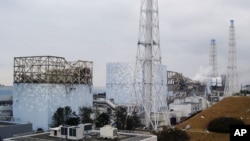Massive power cuts have become the order of the day in Zimbabwe following a decision by Mozambique to drastically reduce electricity exports to Harare over an unpaid debt said to be over $75 million.
Energy Minister Elton Mangoma told the VOA Thursday that Mozambique’s power utility, Hydro Cahora Bassa, had pulled the plug on Harare over the debt resulting in most residents in the country going for more than 10 hours a day without power.
"Metaphorically, they have switched us off and not legally, instead of giving us the full quota that we could have they have reduced their exports to 25 megawatts," said Mangoma.
Zimbabwe needs 2,200 megawatts of electricity per day but generates just 1,300 megawatts, importing the remainder from Zambia and the Democratic Republic of Congo.
HCB has been providing 100 megawatts daily to Zesa. Mangoma said electricity problems will continue until the country’s electricity generation capacity improves.
He urged consumers to expeditiously settle their bills with the power utility so it in-turn can pay foreign power suppliers to avoid disconnections.
"I will then intervene from a political point of view. I'll have to go to Maputo to talk to them to see what other arrangements can be put in," said Mangoma.
Mangoma said pre-paid electricity meters would be introduced soon to avoid some of the current problems facing the country.
Consumers on the other hand continue to complain about inflated ZESA bills even as they go for hours without power.
For perspective on problems bedevilling ZESA, VOA reporter Tatenda Gumbo turned to chairman Simbarashe Moyo of the Combined Harare Resident Association and Director Godfrey Kanyenze of the Lab our and Economic Development Research Institute of Zimbabwe.
Kanyenze says Hydro Cahora Bassa's decision to cut off Harare is enough evidence to show major changes are needed at ZESA and other parastatals failing to deliver in the country.
"Such a situation affects residents and people in Zimbabwe who are directly affected by any lack of basic commodities, more so because we are people who have been affected by critical power problems it is making the picture worse," CHRA's Moyo said.





